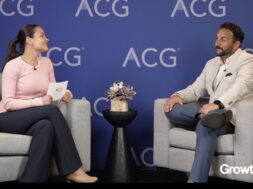Solving Private Equity’s CEO Problem
A survey of PE investors revealed that one of the most important elements of value creation—the CEO—needs to be replaced nearly 75 percent of the time.

How many times in your career have you heard or uttered the phrase “too much money chasing too few deals”? Unfortunately, this frustrated lament reflects what appears to be, at least for now, the new normal. Dry powder keeps climbing to historical levels, prompting at least one LP to pull back on its PE commitments. Valuations remain stubbornly high, making it harder than ever to win the deal.
With these market dynamics as a backdrop, the pressure to get to yes at record high valuations is understandably intense. Faced with a premium price paid and investors’ IRR expectations, the need for valuation creation is tantamount. The tried and true principle of Time Value of Money dictates that the sooner it occurs, the better to enable a compounded rate of success. Yet a recent AlixPartners survey of private equity investors revealed that one of the most important elements of value creation—the CEO—needs to be replaced nearly 75 percent of the time and the need for change becomes clear quickly with more than 50 percent of respondents indicating that incumbent CEOs are swapped out within two years of an acquisition.
A 2014 PWC study of 2,500 of the world’s largest companies revealed that companies that have to fire their CEO forgo an average of $1.8 billion in shareholder value compared with companies that plan for a replacement. There is no reason to believe that this dynamic affecting large corporations does not translate to the middle market. Even when swapping out the CEO within the first two years, remember that time is money. Value is most certainly lost if you don’t have the right horse out of the gate.
“Companies that have to fire their CEO forgo an average of $1.8 billion in shareholder value compared with companies that plan for a replacement.”
So why is the industry not getting the CEO right at the start?
- One likely reason: according to the AlixPartners survey, 40 percent of CEO assessments are unstructured and miss critical success factors
- Another possibility may be an unwitting misunderstanding of the traits and behaviors of a great CEO, largely driven by societal norms
- Another could be instances where a typically thorough CEO assessment process takes a back seat to excitement about the prospects of the industry and/or the company
- Or it could simply boil down to the pressure to put money to work, which results in a “we know we need to do something, but we’ll figure it out later” approach at closing
If CEO turnover often impacts you and your firm,
what can be done to recapture this lost value?
- Gain a greater understanding of what generally makes a great CEO Findings from the recent CEO Genome Project may surprise you: for example, educational pedigree, high confidence, work ethic, and integrity were found to NOT be determinants of CEO success. What four characteristics were found to predict CEO success?
- Quick Decision Making: People who were described as “decisive,” making decisions faster, with conviction, even amidst ambiguity, were 12 times more likely to be high-performing CEOs.
- Engaging for Impact: CEOs who focus on understanding stakeholders’ needs and motivations and then aligning them around a goal of valuation creation were 75 percent more successful in the role. Think of Google under the leadership of Eric Schmidt and now Sundar Pichai, which has not only landed the #1 spot on Fortune’s Top 100 Best Companies to Work For list the past six years, but enjoyed appreciable stock price gains over that same period. It does so by understanding its employees and working diligently to engage them to execute on its mission “to organize the world’s information and make it universally accessible and useful.”
- Adapting Proactively: CEOs who excel at adapting are 6.7 times more likely to succeed. In this everchanging business, economic, and political environment, it is not surprising that this is an attribute that overwhelmingly sets high-performing CEOs apart.
- Delivering Reliably: CEO candidates who scored high on reliability were 15 times more likely to succeed in the role. Similarly, strong CEO candidates overwhelmingly scored high on consistently following through on commitments.
- Figure out what will make a great CEO for this company –With the research in mind, as you perform your industry and company due diligence to understand the growth potential and challenges of the opportunity, hone in on and document the leadership competencies that will be needed to address the unique situation.
- Add rigor to the CEO assessment process: The AlixPartners survey found that more than 90 percent of PE firm respondents rely on interviews and references when assessing a CEO. The personality attributes that have been linked to higher CEO performance can be measured through personality and competency assessments. Yet in conversation, investors generally dismiss the idea of incorporating them in the due diligence process as a non-competitive move. Often the thinking is that they can’t afford to insult the CEO and risk the deal by insisting on personality testing, but given the stakes can one really afford not to?
Middle market private equity is not immune to the negative impact of CEO turnover on profitability. Before signing the P&S agreement and taking ownership, not only ask yourself, “Is this the right CEO for the job?”, but actually take the time to figure it out. With the right CEO for the job in place upon acquisition, no time is wasted, value creation can start Day One, and the risk of leaving money on the table is mitigated. The difference in IRR fund returns will keep investors coming back for more.

Elise Chowdhry is the Managing Principal of Optimum Advisors LLC, an organizational consulting firm focused exclusively on helping middle market firms and companies hire and optimize human capital, align organizations, solve business challenges, and drive growth.
Learn more at www.optimumadvisors.com.


